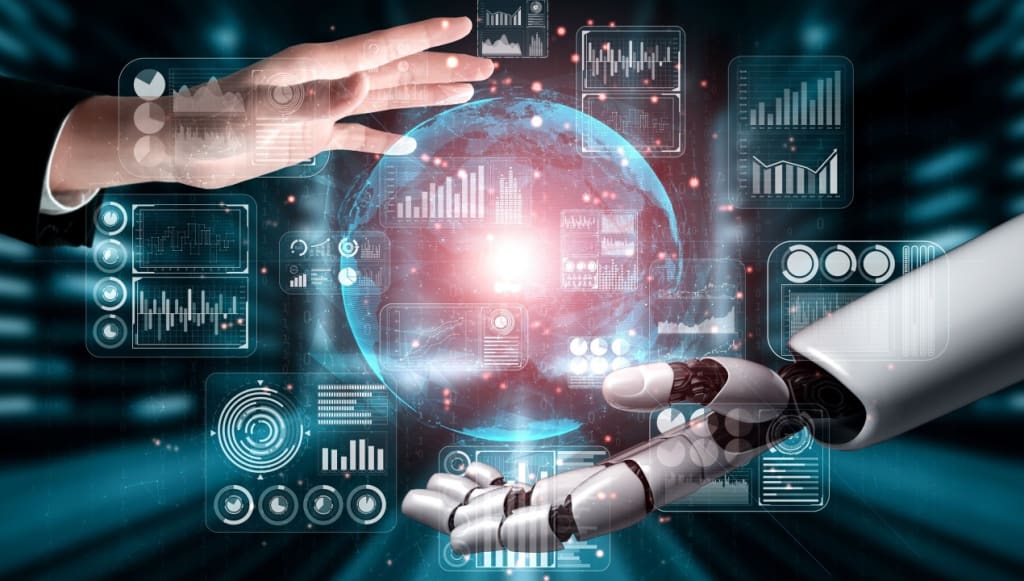Technology and Artificial Intelligence (AI)
Introducing Technology and all about Artificial Intelligence (AI)

Technology has become an integral part of our lives, transforming the way we live, work, and interact with the world around us. One of the most prominent and rapidly advancing fields within technology is Artificial Intelligence (AI). AI refers to the development of intelligent machines and systems that can perform tasks that typically require human intelligence.
AI encompasses a wide range of subfields, including machine learning, natural language processing, computer vision, robotics, and expert systems. These technologies have the potential to revolutionize various industries, from healthcare and finance to transportation and entertainment.
Machine Learning (ML) is a subset of AI that focuses on the development of algorithms and models that allow computers to learn from data and make predictions or decisions without being explicitly programmed. ML algorithms learn patterns and insights from vast amounts of data, enabling them to improve their performance and accuracy over time. This technology has been applied in areas like image recognition, speech recognition, recommendation systems, and fraud detection.
Natural Language Processing (NLP) is another critical aspect of AI. It involves the interaction between computers and human language, enabling machines to understand, interpret, and generate human language. NLP powers virtual assistants like Siri and Alexa, language translation services, chatbots, and sentiment analysis tools, among others.
Computer Vision is the field of AI that focuses on enabling computers to understand and interpret visual information, just like humans do. Computer vision algorithms can analyze and interpret images and videos, recognize objects, detect faces, and even understand emotions expressed by individuals. This technology has numerous applications, including autonomous vehicles, surveillance systems, medical imaging, and augmented reality.
Robotics is an interdisciplinary field that combines AI, mechanical engineering, and electronics to design and develop robots capable of performing tasks autonomously or with minimal human intervention. Robots are used in industries such as manufacturing, logistics, healthcare, and agriculture, improving efficiency, precision, and safety.
Expert Systems, also known as knowledge-based systems, are AI systems that emulate human expertise in specific domains. These systems are built using expert knowledge and rules to provide intelligent recommendations or solutions to complex problems. Expert systems have been employed in fields such as medicine, finance, and engineering to assist professionals in decision-making and problem-solving.
The impact of AI and technology is widespread and has the potential to reshape industries and societies in significant ways. Here are some key areas where AI is making a notable difference:
Healthcare: AI is being used to develop advanced medical imaging techniques for more accurate diagnoses. AI-powered chatbots and virtual assistants can provide preliminary medical advice and assist with patient triage. Additionally, AI is helping in drug discovery, genomics research, and personalized medicine.
Finance: AI algorithms are used in the financial sector for fraud detection, algorithmic trading, risk assessment, and customer service. AI-powered chatbots and virtual assistants are being used to provide personalized financial advice and manage investments.
Transportation: Self-driving cars and autonomous vehicles are becoming a reality, thanks to AI and computer vision technologies. These advancements have the potential to make transportation safer, more efficient, and accessible to all.
Education: AI is transforming education through personalized learning platforms, adaptive tutoring systems, and intelligent educational content. These technologies can tailor educational experiences to individual student needs, improve engagement, and provide real-time feedback to both students and teachers.
Customer Service: AI-powered chatbots and virtual assistants are being deployed in customer service applications, providing automated and personalized support to customers. These systems can handle routine inquiries, offer product recommendations, and assist with troubleshooting.
Cybersecurity: AI is playing a crucial role in enhancing cybersecurity measures. It can detect and respond to security threats in real-time, identify patterns of malicious behavior, and protect sensitive data from unauthorized access.
Despite the numerous benefits and advancements in AI and technology, there are also concerns and challenges associated with their adoption. Ethical considerations, such as data privacy, algorithmic bias, and job displacement, need to be addressed to ensure responsible and inclusive AI deployment.
In conclusion, technology and AI are revolutionizing various industries, improving efficiency, enabling new capabilities, and transforming the way we live and work. With ongoing advancements and research, AI is expected to continue shaping our future, unlocking new possibilities, and addressing complex challenges in society. It is crucial to foster responsible development and deployment of AI to ensure its benefits are maximized while minimizing any potential risks.





Comments
There are no comments for this story
Be the first to respond and start the conversation.